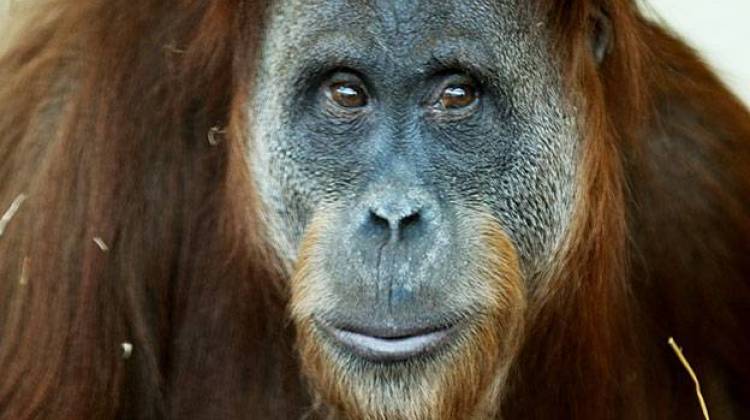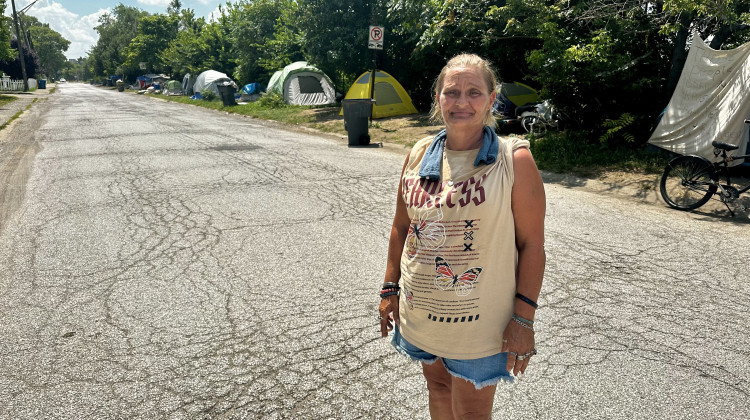
Sirih, a 23-year-old Sumatran orangutan at the Simon Skjodt International Orangutan Center, is about to give birth to the first orangutan baby at the Indianapolis Zoo.
Indianapolis ZooINDIANAPOLIS -- Meet Sirih, a 23-year-old Sumatran orangutan. She lives at the Simon Skjodt International Orangutan Center, and is about to give birth to the first orangutan baby at the Indianapolis Zoo.
Orangutan births in the United States are extremely rare, because there aren’t enough resources to support very many orangutan infants.
Sumatran orangutans are critically endangered. There are less than 7,000 left in the wild, and only about 200 in captivity in the United States.
That makes Sirih’s pregnancy very important for conservation efforts.
“With all the good stuff happening with the baby, we want to remember that we also need to have good things happen for orangutan conservation in the wild,” says Dr. Rob Shumaker, Vice President for Conservation, Science and Education at the Indianapolis Zoo.

The biggest threat to both Sumatran and Bornean orangutans is loss of habitat. That means Sirih’s baby can’t be reintroduced into the wild.
“We would be adding to the problem if we kept sending orangutans back, because we’d have to go through a lengthy reintroduction process and there’s simply not enough habitat,” Shumaker says.
So, Sirih’s infant will bring awareness to the plight of the orangutan from here in the United States.
This will be the second baby for 22-year-old Sirih, and the first for the baby’s father, 14-year-old Basan.
Sirih moved to Indianapolis from Germany a little over a year ago, and the great ape caretakers weren’t sure whether Sirih and Basan would get along.
“There’s absolutely no guarantee that things are going to work when you put two individuals together,” Shumaker says. “They just might not like each other, just might not like spending time together, and the female might not have any interest in the male.”
Luckily, Sirih and Basan hit it off, and Sirih’s pregnancy was announced in November. Now, caretakers say Basan is very interested in Sirih’s wellbeing.
“He cares about her so much that he worries about her every minute,” says Lisa Smith, senior ape keeper.
Caretakers are closely monitoring Sirih’s pregnancy, taking regular ultrasounds to make sure both mom and baby are healthy.
Medical staff have not been able to get a clear enough ultrasound picture to establish the infant’s sex, so that will be a surprise when Sirih gives birth in March.
 DONATE
DONATE






 Support WFYI. We can't do it without you.
Support WFYI. We can't do it without you.